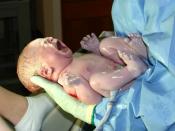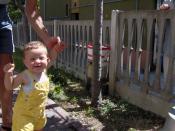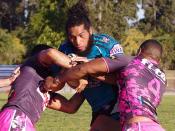Play for the Brain
"The first years last forever," experts advise parents. Modern imaging techniques show how early experiences have long-term consequences by helping to determine the actual structure of a child's brain. It's as if what happens in early childhood is written on stone, as compared to later experiences, which might be likened to tracings in the sand, or even writing on water, as we get older.
While you, as a parent, might welcome expert confirmation that the enriched environment you provide will have a lasting influence on your child's future, you might also be feeling a bit intimidated by the heavy responsibility. The following simple guidelines will help reassure you that you are up to the job...and you don't need a degree in child psychology or a toy store in your basement!
Learn something about child development
When you have a general picture of what children can do at different ages, you can avoid feeling unnecessarily disappointed or frustrated.
It's unrealistic to expect that your one-month-old infant should be able to shake her fancy rattle or that your ten month old should be interested in making a tower of blocks.
Knowing what to expect will also help you provide appropriate games, toys and activities at the right time. If you read that at eleven months most babies can pinch things between their thumb and forefinger, you will put some Cheerios or frozen peas on a tray so they can try out this new skill. If you know that language learning starts at or even before birth, you will talk, sing and read stories to your baby long before he or she can use words him or herself.
Look for information about typical stages in free pamphlets at public health clinics or family resource programs. Parenting magazines also often...



Some tips
good creative work, but is there at least thesis statement or conclusion?
4 out of 4 people found this comment useful.